Having received his first violin instruction at the age of four from his German-Jewish father (a Holocaust survivor) in Riga, Gidon Kremer continued his studies at the Latvian Academy and then with David Oistrakh in Moscow. His success at several major competitions between 1967 and 1970 led to a significant number of concert engagements, but he was not allowed to perform outside the USSR until 1975. An encounter with Karajan at his London début immediately afforded Kremer further European opportunities, including an appearance at the opening concert of the Salzburg Festival. Since then he has been a major figure on the international platform, performing a notably wide repertoire and specialising to some extent in new music. His enterprising character is reflected in his initiation of a festival (known as Kremerata Musica) in Lockenhaus, Austria to promote contemporary and lesser-known music, as well as the formation of an orchestra (Kremerata Baltica) of young players from the Baltic States which has performed successfully around the world. Works written for him include Pärt’s Tabula Rasa, Denisov’s Violin Concerto, Nono’s La lontananza nostalgica utopica futura and several pieces by Schnittke. With Schnittke and his first wife, Tatiana Grindenko, Kremer took part during the pre-Gorbachev Soviet years in performances of ‘unauthorised’ music such as the Gubaidulina and Suslin works included here (both composers were considered subversive by the Ministry of Culture). Kremer’s discography of over 300 recordings reflects his strength as a champion of twentieth-century music as well as his versatility and ability to produce a startling range of tonal qualities and effects. His collection of violins includes a 1730 Guarneri del Gesù and the Antonio Stradivari of 1734 known as the ‘Baron Feititsch-Heermann’. He often plays a Nicolò Amati violin of 1641.
Kremer’s performances reveal not only a formidable artistic personality, but also a considerable intellect. This is undoubtedly one of his great strengths, and perhaps explains his prowess in more recent repertoire. There is something lean and pared down in his sound, and a strong impression that gestures we have come to expect of modern players (such as vibrato) are questioned and applied thoughtfully according to context. More fundamentally, his approach is apparently dictated by the architecture and meaning of the music being played, rather than by a general pursuit of beautiful tone as an end in itself. Some results are more successful than others in terms of popular appeal. The Beethoven Concerto recording of 1993 with Schnittke’s somewhat post-modern cadenzas (featuring frequent quotation of other works such as Brahms and Shostakovich), for example, is an acquired taste, as is a rather dry Beethoven Op. 96 Sonata with Oleg Maisenberg. Nonetheless, even here one can appreciate a daring individualism in his approach that is sadly lacking in much modern artistry, notably at the opening of Op. 96 where Kremer’s flautando bowing is arrestingly ghostly. Equally, his 1981 Bach unaccompanied sonatas (BWV 1005 being particularly noteworthy) are architectural and quirky: again, rather dry and in a way equivalent to Glenn Gould’s Bach on the piano. This strength of direction can be very effective in some of Kremer’s Classical and Romantic repertoire. Schumann’s Op. 121 Sonata (2006), with all its rhetorical curiosities, is interpreted in a powerful and impassioned way, whilst violist Kim Kashkashian and Kremer inject lightness and fun into their Mozart duo recordings (see Kashkashian’s entry in this book).
In twentieth-century repertoire Kremer truly excels. Prokofiev’s 5 Melodies (1991) are imparted with intensity and an impressive variety of texture and colour, but his 1977 recording of Webern’s 4 Pieces is even more exquisitely balanced in an approach that, through his depth of tone and emotional bearing, excites the Romantic sensibilities of these miniatures. The ease and coherence with which he integrates Romantic touches with more experimental or modernist ideas hints at a fundamental understanding of musical complexities—something that is equally present in the strong willed, technically superlative 1987 Bartók sonata recordings. The rare ability of Kremer to create stillness and a sense of the suspension of time, drawing one into a profound minimalist sound world, makes his 1984 recordings of Pärt’s Fratres and Tabula Rasa almost hypnotic, especially the later sections of Tabula Rasa.
Whilst some of Kremer’s interpretations may come across as erring towards the esoteric, there is never any doubt of the genuine profundity and intellectual rigour that define his approach, making his very large discography one of the most extraordinary musical achievements of recent times.
© Naxos Rights International Ltd. — David Milsom (A–Z of String Players, Naxos 8.558081-84)
| Title | |
| BERG, A.: Violin Concerto (Kremer, Bavarian Radio Symphony, C. Davis) | |

|
BERG, A.: Violin Concerto (Kremer, Bavarian Radio Symphony, C. Davis)
Composer:
Berg, Alban
Artists:
Bavarian Radio Symphony Orchestra -- Davis, Colin -- Kremer, Gidon
Label/Producer: Monarda Music |
| BOULEZ CONDUCTS BARTOK (Kremer, Bashmet, Berlin Philharmonic, Boulez) | |
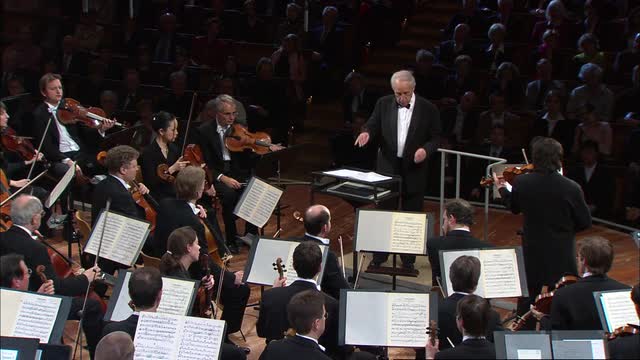
|
BOULEZ CONDUCTS BARTOK (Kremer, Bashmet, Berlin Philharmonic, Boulez)
Composer:
Bartok, Bela
Artists:
Bashmet, Yuri -- Berlin Philharmonic Orchestra -- Boulez, Pierre -- Kremer, Gidon
Label/Producer: EuroArts |
| KREMER, Gidon / ARGERICH, Martha: Memory of a Concert | |

|
KREMER, Gidon / ARGERICH, Martha: Memory of a Concert
Composers:
Bartok, Bela -- Kreisler, Fritz -- Schumann, Robert
Artists:
Argerich, Martha -- Kremer, Gidon
Label/Producer: EuroArts |
| KREMER, Gidon: Back to Bach | |
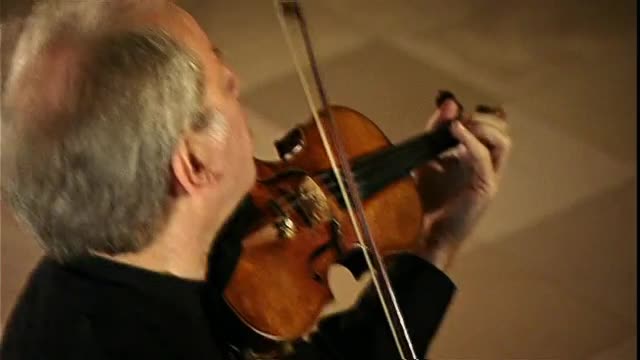
|
KREMER, Gidon: Back to Bach
Composer:
Bach, Johann Sebastian
Artist:
Kremer, Gidon
Label/Producer: EuroArts |
| MOZART, W.A.: Serenade No. 6, "Serenata notturna" (Kremer) | |
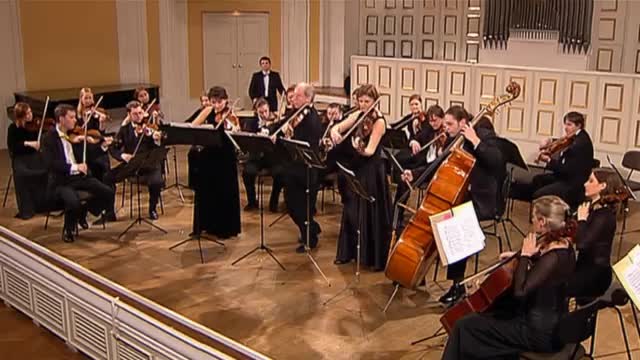
|
MOZART, W.A.: Serenade No. 6, "Serenata notturna" (Kremer)
Composers:
Bor, Teddy -- Mozart, Wolfgang Amadeus
Artists:
Kremer, Gidon -- Kremerata Baltica
Label/Producer: UNITEL |
| MOZART, W.A.: Sinfonia concertante in E flat major (Kremer) | |
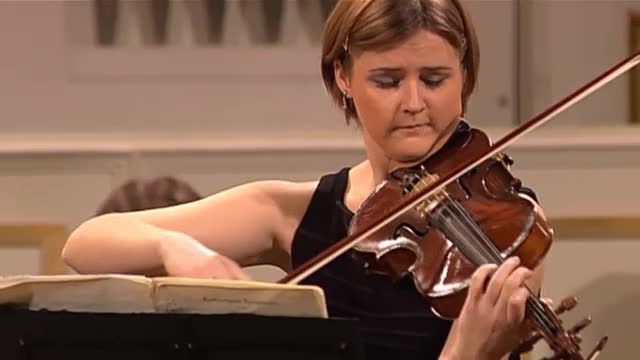
|
MOZART, W.A.: Sinfonia concertante in E flat major (Kremer)
Composer:
Mozart, Wolfgang Amadeus
Artists:
Kremer, Gidon -- Kremerata Baltica -- Ulijona, Ula
Label/Producer: UNITEL |
| MOZART, W.A.: Violin Concerto No. 2 (Kremer, Harnoncourt) | |
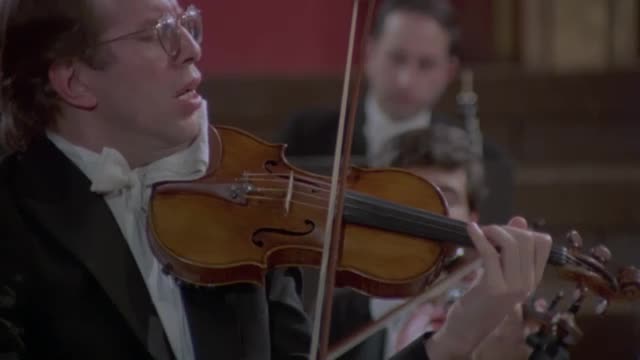
|
MOZART, W.A.: Violin Concerto No. 2 (Kremer, Harnoncourt)
Composer:
Mozart, Wolfgang Amadeus
Artists:
Harnoncourt, Nikolaus -- Kremer, Gidon -- Vienna Philharmonic Orchestra
Label/Producer: UNITEL |
| PAGANINI, N.: Paganini's Daemon | |
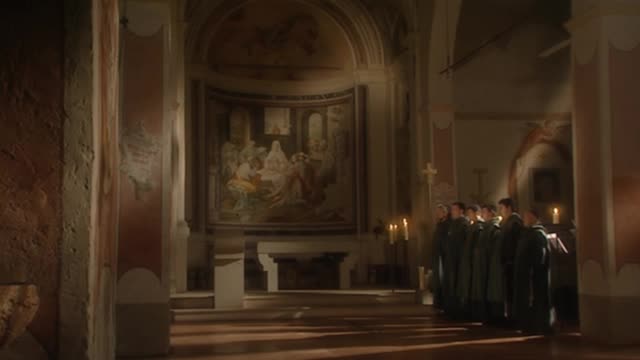
|
PAGANINI, N.: Paganini's Daemon
Artists:
Barrett, Sean -- Foster, Lawrence -- Hawthorne, Denys -- Kremer, Gidon -- McKenzie, Nicolette -- Nupen, Christopher -- Orchestra della Svizzera Italiana -- Thorne, Stephen -- Williams, John
Label/Producer: Christopher Nupen Film |
| SCHUBERT, F.: String Quintet in C major, Op. 163 /PIAZZOLLA, A.: Oblivion (Kremer) | |
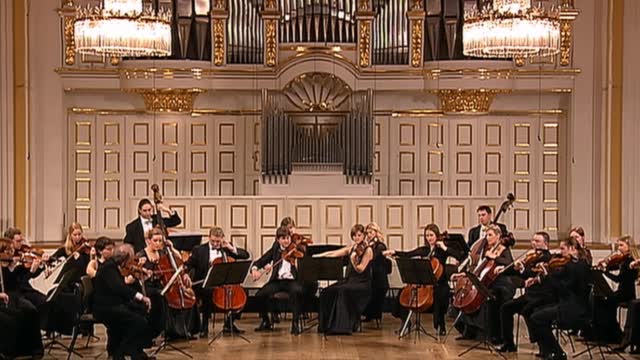
|
SCHUBERT, F.: String Quintet in C major, Op. 163 /PIAZZOLLA, A.: Oblivion (Kremer)
Composers:
Piazzolla, Astor -- Schubert, Franz
Artists:
Kremer, Gidon -- Kremerata Baltica
Label/Producer: UNITEL |
| VIVALDI, A.: 4 Seasons, Op. 8 (The) (Kremer) | |
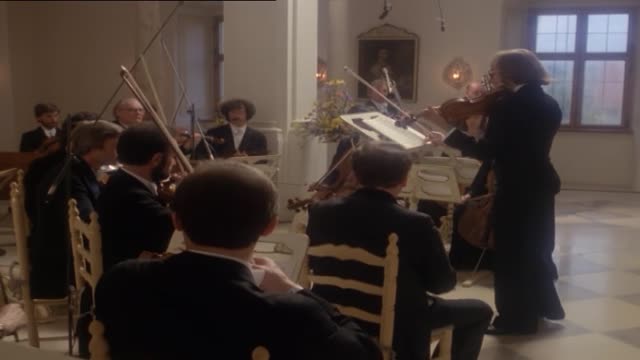
|
VIVALDI, A.: 4 Seasons, Op. 8 (The) (Kremer)
Composer:
Vivaldi, Antonio
Artists:
English Chamber Orchestra -- Kremer, Gidon -- Ledger, Philip
Label/Producer: UNITEL |
